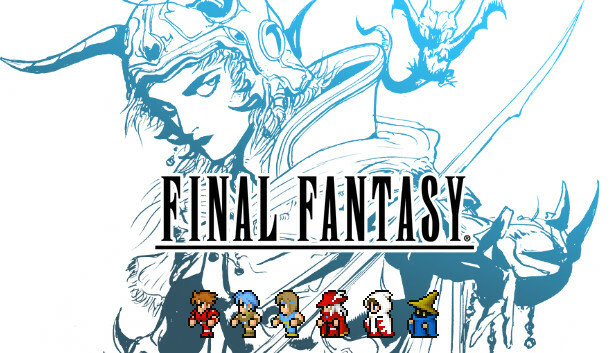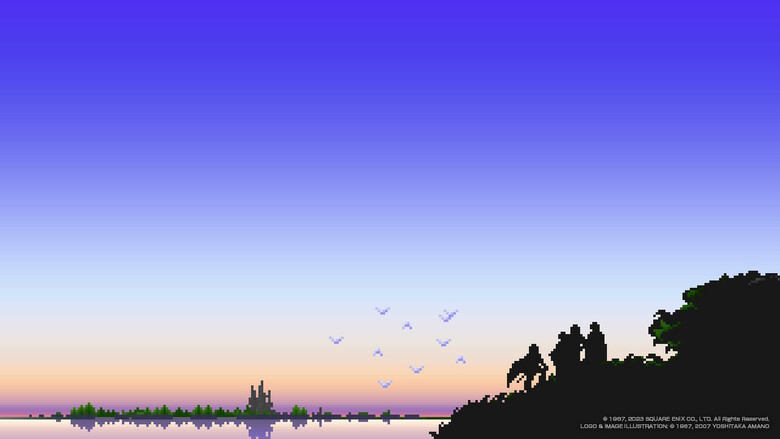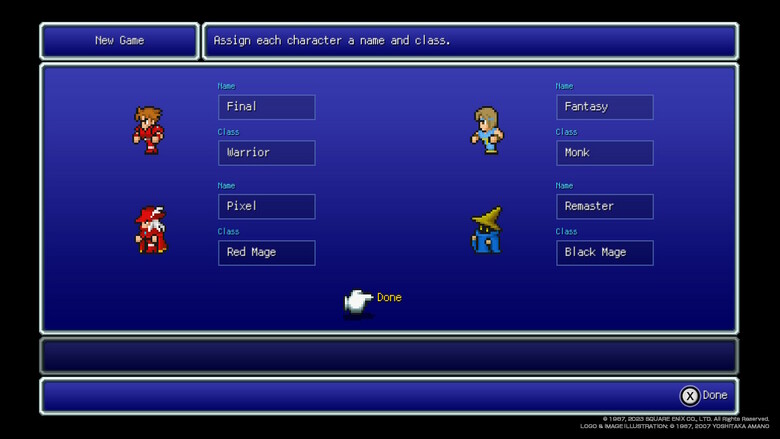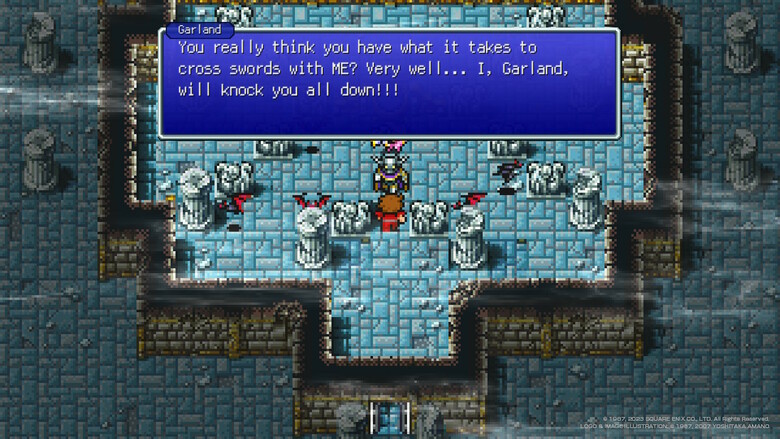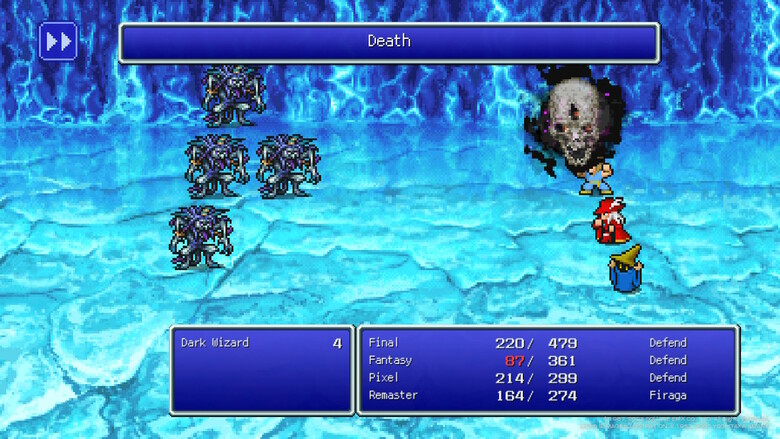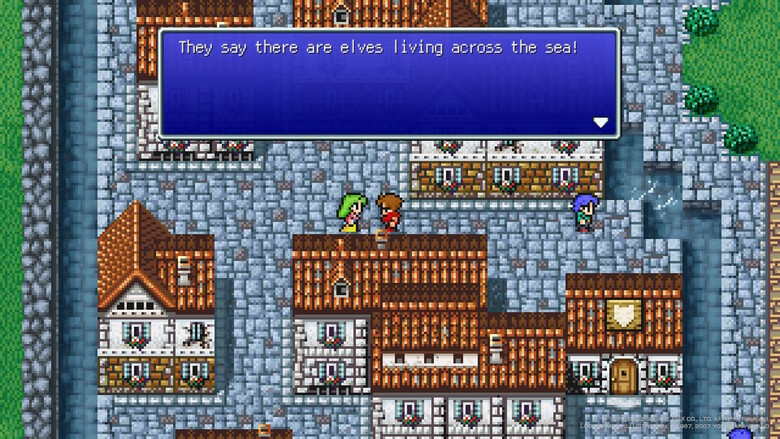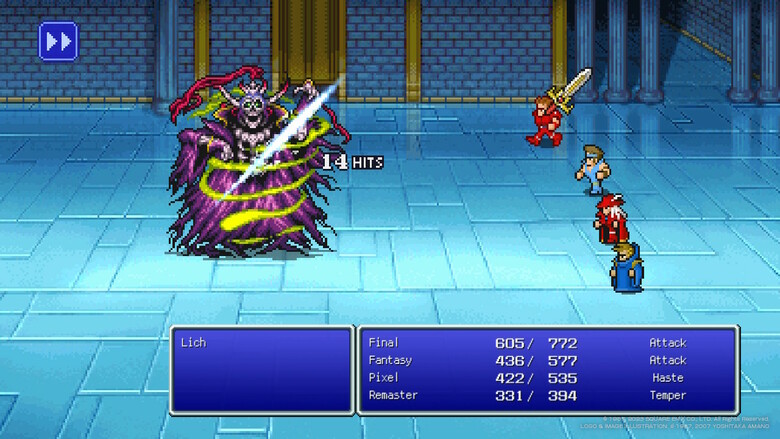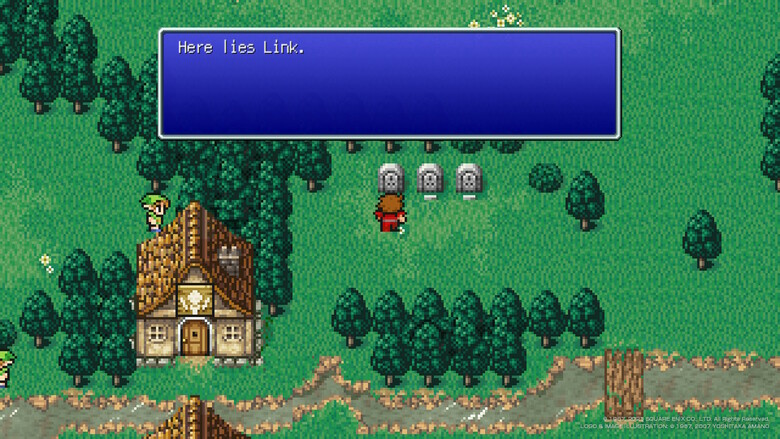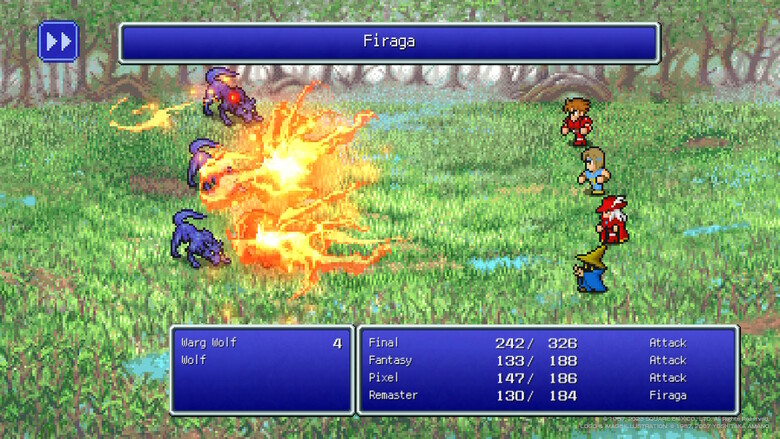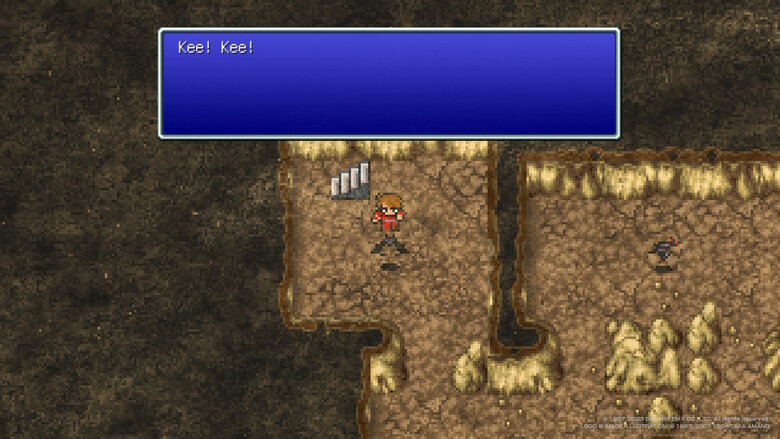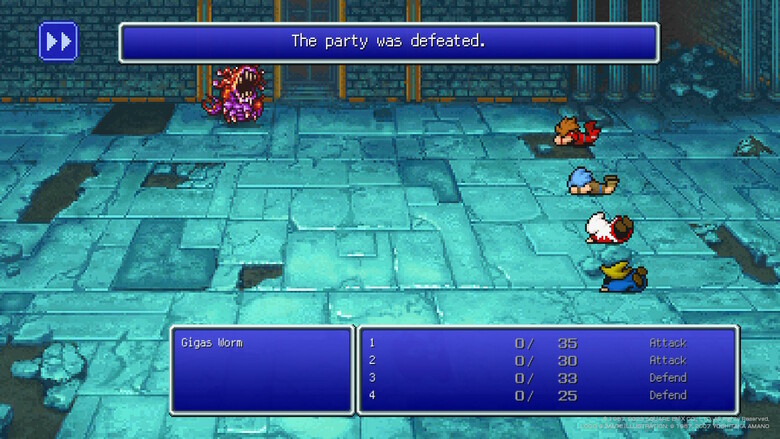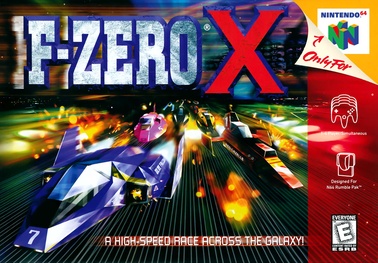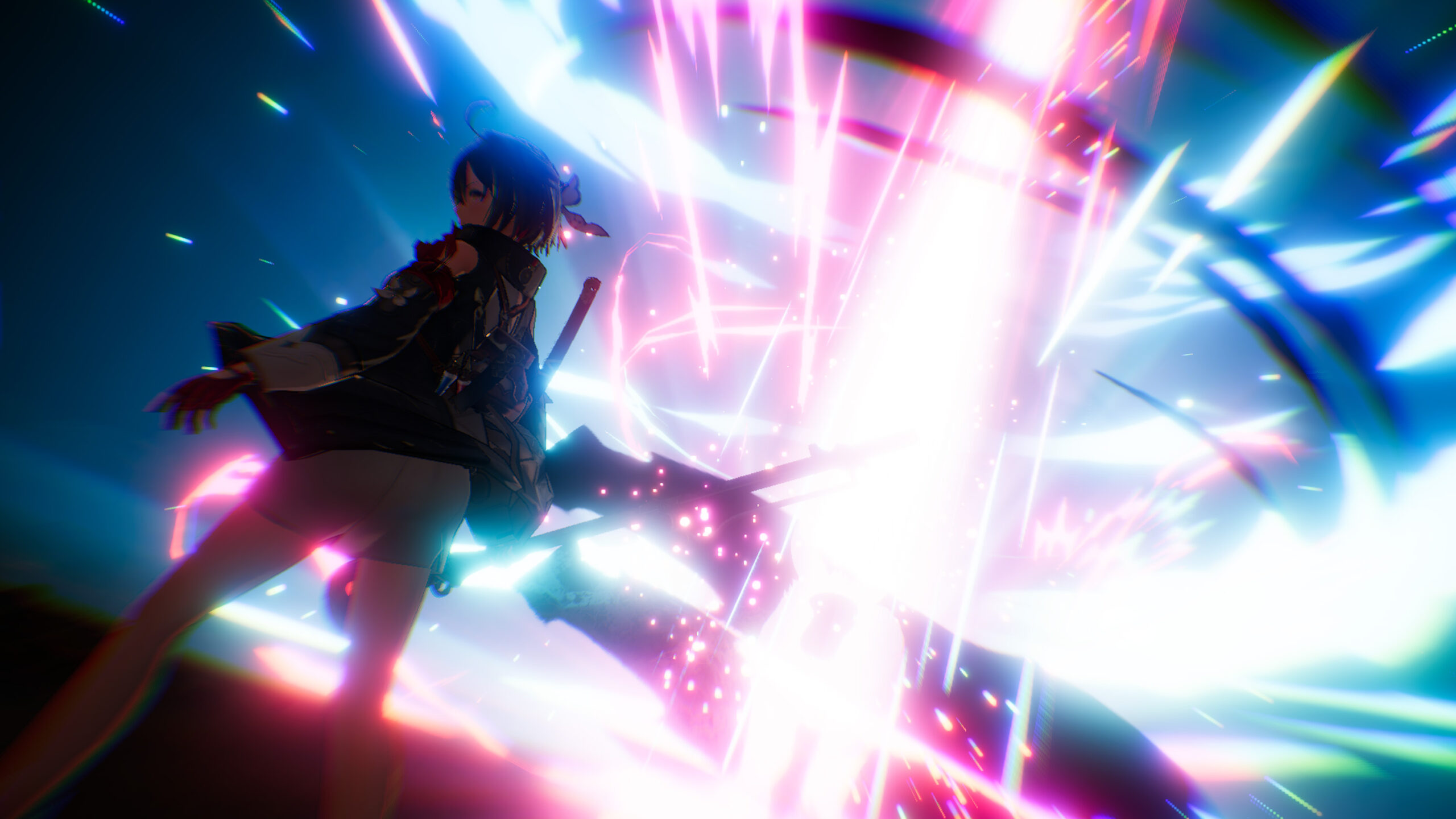REVIEW: Final Fantasy Endures Due to Harsh Reality
Note: This review can be applied to every version of Final Fantasy, but is based primarily on the Pixel Remaster version. If you want my perspective on the Pixel Remaster specifically, you can find it in its own section further below!
Final Fantasy can be anything, yet not everything can be Final Fantasy. Series creator Hironobu Sakaguchi once advised that a game can be Final Fantasy “if it has a blue window with text in it.” Unlike many other video game franchises, there aren’t any truly unambiguous characteristics that one can point towards to define a Final Fantasy game. As far as ambiguous characteristics go, I believe a sense of urgent passion to be the key ingredient.
You can make all the jokes you want about Final Fantasy never being “final,” but the title reflects the mindset that created it rather than it being a literal statement. Mr. Sakaguchi famously began Final Fantasy with the intent that it would be his last video game project before calling it quits in the video game business. Final Fantasy originated with the kind of passion that one would put into their final project. With that in mind, it’s no wonder that after so many entries, Final Fantasy continues to endure.
The mindset behind Final Fantasy speaks to me. Not to be a downer, but no one really knows how much time they have in life. While we shouldn’t live in fear that each moment will be our last, it makes sense to put our all into the projects we currently have in front of us. The pressure of our finite existence turns the stones we cast out into the world into diamonds…ideally, anyway. That kind of pressure also explains why each Final Fantasy gets filled so thoroughly with ideas that each can stand alone in its own universe. Urgency brings out the best in Final Fantasy’s eclectic nature, with each entry having its own special charms that stand on their own and are worthy of respect.
I respect the original Final Fantasy for its adherence to harsh reality. I don’t mean that in the sense that it’s a realistic game, but rather that it contains hints of reality that color the otherwise fantastical nature of the game. Final Fantasy conveys its sense of reality through how its gameplay mechanics portray a sense of adventure.
Many games promise adventure, but truly providing one is more complicated than it seems. So many games make adventures and battles seem easy. If you breeze through an adventure without effort or thought, however, is that really much of an adventure at all?
To me, adventure begets hardship. Hardship, especially in games, comes in many forms. Getting lost, bumping up against powerful enemies, or having to manage resources all serve as possible examples. Games need to consider a balance, of course. If a game only beats you down with hardship that won’t be fun, so the quality of the adventure depends on how it executes the hardships.
The original Final Fantasy works because it balances things… I wouldn’t say fairly, but fairly enough. If you take your time, you can overcome the challenges it tosses your way. If you rush headlong brainlessly, you’ll die constantly. Final Fantasy promotes caution and preparation, and it primes you for that from the moment you begin the game.
Final Fantasy primarily builds its sense of adventure up through choice. When you start the game, the game doesn’t just start. Instead, you need to decide who you’re bringing with you for the journey. Your choices for party members shape your experience on a fundamental level. Each of the six classes carries their own positives and negatives. dramatically changing how you approach the adventure.
Your party braces you for the kinds of problems you’re going to face. Strong attacker classes like the Fighter or Monk move battles along with the heavy damage they deal and ability to tank hits, yet will eventually succumb to their wounds without support. White Mages solve a lot of logistical problems in terms of keeping your party alive, but their talents can only be stretched so thin. Most newcomers may opt for an even spread of classes that covers all their bases, while others seeking a challenge may skew towards something wackier. Four White Mages? It’ll never work…or will it? Probably not without some heavy grinding and resets, at any rate.
Party choice creates a sense of ownership that allows you to invest more heavily into the experience. Your decisions here stick with you for the entire rest of the game, so in a sense they’re the most important decisions to make. You even get to name the poor souls you drag along with you, which gives extra incentive to keep them healthy. Otherwise all of that effort you put into their names would go to waste! Ignore the ones in my screenshots.
Once you pick your team, the game plops you onto a grassy field. While the nearby town tempts players into being the first destination, you don’t need to heed its call. You can just as easily bypass the town and go wherever you feel. If you do that, however, you will likely find yourself overwhelmed by random encounters with enemies before you find anything cool. Even if you at least visit the castle to hear about infamous knight Garland, he’s liable to knock you down if you beeline straight to him.
That’s the most important lesson that Final Fantasy teaches you. The best way to prevent your first stop from being your final stop is to make your destination a nearby town. In towns, you can stock up on weapons, armor, and items to preemptively solve the many problems you’re guaranteed to run into. Virtually the entire game works this way – you stock up at a town, head out for adventure, then either find a new town or go back to the previous one when plans go awry. It’s a constant cycle.
Players need to proceed under the assumption that their plans will in fact go awry – the random nature of the enemy encounters ensures that. Sometimes you’ll make major headway into a dungeon without any interruptions, while other times can feel like you’re tripping over goblins every few steps. The encounters themselves can range from smacking around EXP fodder to something that forces you to guzzle down all of your resources.
Random encounters get a bad reputation for how they can annoy or inconvenience players, but many games, including Final Fantasy, would be lesser without them. They inject the world with the danger that makes it feel real. The ever present fact that one bad ambush by enemies can lead to a game over screen glues the entire Final Fantasy experience together. Without the fangs of defeat looming in the shadows, everything else in the game loses its importance.
For example, the Marsh Cave will likely be the biggest roadblock in the game for most players. It’s a dungeon that branches out into multiple directions and frequently assaults you with enemies that poison your crew. Unless you overprepare by leveling up your characters and stocking up on items, you’ll find yourself drained of resources before you come anywhere close to cleaning it out.
The deadliness of the Marsh Cave essentially forces you to make multiple trips into it. That’s by design and it’s even openly encouraged by the floorplan. The initial floor of the dungeon branches out into multiple directions that mostly lead to dead ends. Returning back from any of them will funnel you back to the entrance.
By hiking through the Marsh Cave in multiple pushes, you become more familiar with its layout and the kinds of threats within it. It becomes more of a “place,” which benefits you from a narrative and a gameplay perspective. As an added benefit, you level up naturally as you go in and out of it.
That’s part of why I don’t think the concept of grinding is necessarily a bad thing. By grinding, you’re essentially recognizing the threat the game poses. Grinding is gambling that you can’t handle what the game has in store for your immediate future. That isn’t always (perhaps even rarely?) true, especially for players familiar with the game mechanics. You trade time for security with this process, which adds stakes to your adventure in its own way. Not only that, sometimes it’s just fun to feel like your characters are growing! I know that I’m proud to see Pixel and Remaster come so far.
Of course, whether it’s trekking through a tough dungeon or grinding for hours, everything must be done in balance. That goes for Final Fantasy’s sense of reality, as well. Danger defines Final Fantasy in a big way, but it’s far from the only way.
Final Fantasy also breathes life into its adventure with a healthy sense of exploration. Getting through the Marsh Cave is one thing, but so is figuring out that you’re supposed to go through it in the first place. Once you complete your initial task of vanquishing Garland, the world of Final Fantasy opens up considerably, yet never tells you exactly where to go.
Although the game rarely outright tells you where to go, it does tell you plenty. As long as you take the time to speak with townspeople and scout around, it’s actually quite easy to figure out where to go. Oh, there’s a witch in the north? Maybe that’s important. Huh, Dark Elves are running amok in the west? Maybe you should clean up their mess. Following the gossip of the townsfolk gives you vague guidance while avoiding outright putting things in your lap. This method creates a sense of ownership of your adventure. It organically leads you across the world in a way an ever present objective marker simply cannot.
By forcing you to interact with everyone you meet and wander around the world, you also naturally absorb its charms. Despite being rather spartan in its writing, the characters can be plenty charming. The world of Final Fantasy, despite being steeped in all kinds of tropes from fantasy literature and tabletop games, feels surprisingly distinct and detailed. Final Fantasy’s characters and world design were created by people who had detailed reasoning for all of their artistic decisions, from the color of the mountains to the White Mage’s robes. Even if the world may be vague and simple, that attention to detail bursts through the ambiguities. It creates a world that extends beyond the sum of its parts.
As you progress through the game, you’ll gradually find the harsh realities fade away. The world itself slowly sneaks away from its relatively grounded fantasy setting, introducing elements like futuristic technology and time travel that change how you view the world as a whole. As the setting transforms, the difficulty of each new area gradually eases as well. Part of that can be owed to the player simply knowing how the game works by that point, but your characters grow much stronger as well. You’ll find yourself returning less and less to towns to regroup and can often complete the last few dungeons in one run. For a game that ultimately ends up being about breaking cycles, that may be the most appropriate gameplay progression possible.
By the time you reach the end of Final Fantasy, you truly feel like you ran the gamut and went on an adventure. You emerged from dastardly dungeons, found your way across the entire planet, discovered all of its otherworldly secrets, and soaked in all of the charming details on the way. Most importantly, you did it all your way, with your party following your decisions at every turn. Your choices overcoming the game’s harsh realities transforms the experience from fantasy into Final Fantasy.
The Pixel Perspective
The Pixel Remaster of Final Fantasy isn’t the first re-release of Final Fantasy and it in all likelihood won’t be the last. Is the Pixel Remaster the best way to play the original Final Fantasy? It depends on what you’re looking for, but it does offer a unique blend of prior iterations that I certainly think is worth checking out.
Many of the Pixel Remaster’s aesthetic changes will depend on your preferences – the visual changes to the game largely boil down to lateral moves from what other versions have done. The character and environment art channels the original NES renditions while adding some detail. It’s a nice compromise between the simplicity of the original visuals and the more detailed versions of some later versions like the one on PSP.
As a badge carrying member of the Font Police, I’m happy to report that these new console versions of Pixel Remaster allow you to pick between two different kinds of font. One looks awful and the other staggeringly adequate. In an age where you can’t always trust the font in these re-releases to match the game’s aesthetic, that’s good enough for me.
On the Switch release of the Pixel Remaster, you can choose between the original NES soundtrack or brand new remixes. The remixes sound surprisingly great. For an RPG like Final Fantasy, remixes risk falling into a pitfall of having the original bleep bloops reimagined into impressive yet stiff sounding orchestral anthems. Doing that for something like Final Fantasy forgets the bombastic playfulness of longtime series composer, Nobuo Uematsu. The Pixel Remaster brings out the fun side of his compositions and evokes his later work on the series, bringing plenty of rock instrumentation to complement the more traditional orchestra.
How the Pixel Remaster handles gameplay makes up the bulk of the interesting changes. As expected, the game has been rebalanced to be an overall easier experience than its original incarnation. Despite that, the Pixel Remaster features some odd quirks.
Unlike most re-releases, the Pixel Remaster keeps the original magic system. Normally, the Final Fantasy re-releases (and most RPGs in general) tend to tie your magic spells to a pool of points, usually something you can abbreviate to MP like Magic Points or Monkey Paws. In its original incarnation, however, Final Fantasy grouped spells into different tiers and had a separate set of points tied to each of them.
While interesting, this change ultimately affects the early game a little bit and the rest of the game hardly at all. In practice this system limits how often you can use some of your most useful spells more than the MP system does. That can sting early on, although it can also create interesting scenarios where you may try to eke out wins with lower level magic for as long as you can and save the big guns for when you really need them. By the time you start getting multiple tiers of spells, however, you’ll be able to afford more than enough Ethers from the town shops to the point it no longer matters how you ration things out.
For fans of those re-releases with the more traditional magic system, the more notable absence in the Pixel Remaster will likely be the lack of any extra dungeons. This new version trims down the game’s content back to what was present on the NES. That means in terms of “post-game,” all you’re looking at is filling out the Bestiary for any monster fights you missed. Personally, I find most of the fun of the original Final Fantasy to be doing new runs anyway, so this omission doesn’t hit me particularly hard, but it does come with a caveat.
I don’t really mind that subsequent incarnations of Final Fantasy tend to adjust the game to be easier because it still retains the core spirit of the game. You still need to practice caution when it counts and the game eventually wraps around into being a much easier experience by the end. The Pixel Remaster follows in those same footsteps right until the end. As in, the very last part of the game totally throws that balance off-kilter in a shockingly rough fight with the final boss.
It didn’t seem right to me. Most Final Fantasy bosses die within three or four rounds, and even if the final boss puts up more of a fight than most, I simply couldn’t keep up with the boss’s damage output. I clearly didn’t stand a chance. The one time I didn’t bother to bring a White Mage and I paid dearly for it!
Apparently the Pixel Remaster version of the final boss makes two key adjustments – he now uses his move pool completely at random, so it’s entirely possible for him to spam his most powerful spell at you multiple times in a row, and it buffs his health points. That latter change apparently carries over from previous rebalancings of the fight from other versions of the game, which included those above-mentioned extra dungeons full of extra powerful equipment. The assumption here being that you’d grab some of the extra goodies prior to the final battle. Oops!
Long story short, I grinded about eight levels, tried a few more times, and eventually emerged victorious. It was a close call, but the world was saved once more. While gratifying in the end, I couldn’t help but think that this boss retuning seriously derailed what I consider to be an otherwise well-paced adventure.
Instead of doing all that grinding, I technically could have indulged in the many “convenience” options that the Pixel Remaster offers. About the only addition that I don’t really mind is the “auto battle” option, which basically just repeats the last actions you set your party to do until you tell the game to stop. That can cause its own problems if you use it brainlessly, so it’s an acceptable convenience. Everything else amounts to activating a cheat device: you can multiply the XP and gold you get which trivializes grinding, quick save at any point in the game for instant reloads, and even turn random encounters off entirely. These options worry me.
I’m not saying that these inclusions outright hurt the game, but they do present a rather prominent risk of doing so for newcomers. Final Fantasy ceases to exist if you no longer need to worry about properly preparing for anything. Random encounters can’t jump out at an inopportune moment, set you back on resources, or force you to restart. With no danger, the whole system falls apart. This isn’t an issue of skill so much as an issue of, if you aren’t careful, effectively bypassing everything that makes Final Fantasy a fun or interesting game.
The choice to bypass all of that ultimately lies in the hands of the player, of course. While I understand that sometimes people just need a little help, I hope that anyone playing the game today plays it with an open mind about what the game is supposed to be. That’s partly why I wrote out so much about the appeal of the game in the first place. Balance is important to Final Fantasy – it’s a game that defines itself through hardship. In order to experience the adventure it provides, however, you need to be willing to give it a chance.

